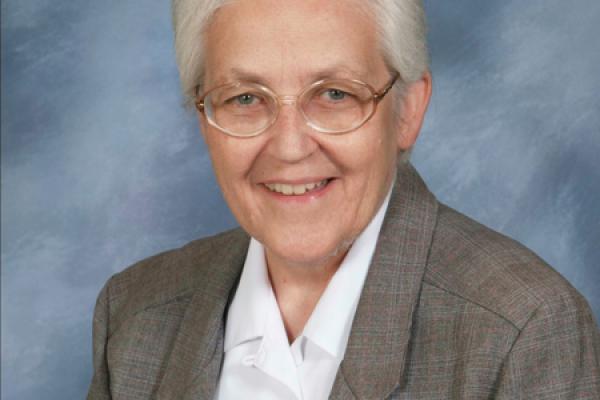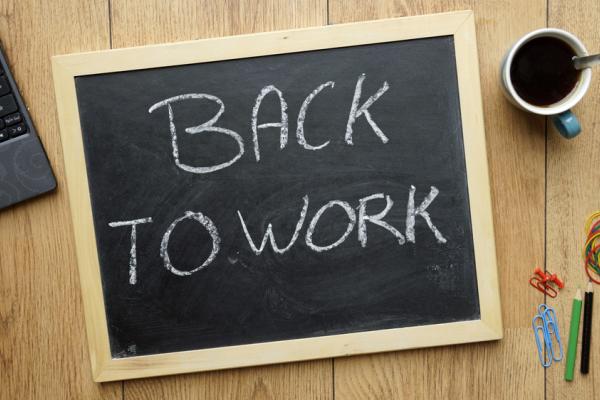For most of recorded history, Isis was an Egyptian goddess, a benevolent type who cared for widows and orphans, cured the sick and even brought the dead back to life.
This year, the world met the other ISIS.
The rise of the so-called Islamic State, variously known as ISIS or ISIL, dominated headlines in 2014 as a self-proclaimed caliphate sowed death and destruction across Iraq and Syria. For some, the group confirmed their worst fears about Muslim extremists, bent on killing religious minorities and subjugating women in a quest for domination that included leveling villages and beheading hostages.
The terror wrought by the Islamic State reflected a sense of turbulence that upended international news in 2014. But it was not the only source of unrest. The Ebola virus in west Africa put the world on edge, and a bloody war between Israelis and Palestinians in Gaza, kidnapped schoolgirls in Nigeria and the slaughter of more than 100 children at a military school in Pakistan added to the mix.
At home, America wrestled with police brutality as grand juries declined to prosecute officers in the deaths of unarmed black men in Ferguson, Mo., and New York City. From botched prison executions to a stream of desperate migrant children flooding America’s southern border, things felt troubled, disorienting, always on the verge of breaking apart.
Religion played a large role in those stories, and in other major headlines from 2014:
Major sporting events could be held at the Vatican if Rome wins its bid to host the Summer Olympics in 2024.
Pope Francis, a keen soccer fan, is reported to be enthusiastic about the idea. He is expected to meet the head of Italy’s National Olympic Committee, Giovanni Malago, and other officials at the Vatican on Dec. 19 after a Mass to commemorate the committee’s 100th anniversary
Cardinal Jose Saraiva Martins, former head of the Congregation for the Causes of Saints, said he believed Francis would back plans to hold events such as archery in the Vatican gardens.
He told the Florence daily La Nazione that events could also be staged at the pope’s summer palace at Castel Gandolfo outside Rome.
“It seems like a good idea, I think the pope will approve,” Saraiva Martins said.
Alan Gross, the Jewish international aid worker held on alleged spy charges in Cuba for five years, was freed on Dec. 17 — what some are calling a Hanukkah miracle on the first day of the holiday that celebrates religious freedom.
Gross, 65, of Maryland, has always claimed that he only went to Cuba to bring communications equipment to the small Jewish community left in Havana. However, the Castro government said he was part of a spy network attempting to set up a secret network for Cuban Jews. Gross was serving a 15-year sentence.
President Obama chose the Dec. 17 release as a springboard to announce a massive historic “normalization” of U.S.-Cuba relations. Meantime, in Cuba, President Raul Castro, who held a press conference in Havana at noon, was expected to release 53 Cuban political prisoners.
Obama particularly credited the “moral example of Pope Francis,” who actively encouraged Gross’ release. Francis, who held private meetings at the Vatican to secure the deal, praised the move, sending “his warm congratulations for the historic decision taken by the Governments of the United States of America and Cuba to establish diplomatic relations, with the aim of overcoming, in the interest of the citizens of both countries, the difficulties which have marked their recent history.”
With Christmas less than a week away, the time for last-minute gift shopping is now. Sojourners’ Just Giving Guide has detailed a variety of ways to shop in a socially-conscious manner. We’ve gone one step further and highlighted some unique purchases from organizations that directly impact the lives of women and girls internationally and domestically. Check out the links below for creative gifts that make a difference for female empowerment.
I had just started as pastor of a large church when a key leader took me aside and said I was free to preach about anything I wanted, except homosexuality.
He didn’t want to hear any sermons addressing the issue then dominating many conversations among Christians. Keep the topic in the closet.
Sixteen years before, in a town once governed by the Klan, a leader told me not to preach about race. Too many people remembered signs saying, “Negroes must be out of town by sundown.”
Many clergy have been told, in terms ranging from kindly counsel to peremptory demand, to “keep politics out of the pulpit.”
Many a mainline pastor will attest: The one topic that Jesus addressed more than any other — wealth and power — was declared off-limits in congregations that hoped to attract wealthy constituents and their budget-saving pledges.
Many churches gave up their ethical voice in exchange for money, the very trade Jesus warned us against. The issue wasn’t partisan campaigning or endorsing specific candidates — a clear violation — but any mention at all of race, sexuality, warfare or economic injustice.
As a reader recently wrote me: “I hear enough about blacks on TV.”
So it is that Christmas becomes a sweet story and a centerpiece for family love.
It’s a common ritual in religious observances this time of year: Light a candle against the darkness, the winter, the uncertainty of the world.
But a newly minted observance called Secular Solstice adds its own spin. Those lighting the candles are nonbelievers — humanists, atheists, skeptics, and other freethinkers — and the candles represent no unseen divinity, but the actions and intentions of those who light them to make the world a better place.
“We live in a world beyond the reach of God,” one of the service’s many readers said as 130 or so people gathered huddled over white candles in glass votives at Humanist Hall — a purple-painted house near downtown Oakland. “It is a hard universe. If we want to build a softer universe we will have to do it ourselves.” As a choir broke into “Here Comes the Sun,” an inscription painted on the wall beamed down upon the gathered, “The world is my country, to do good is my religion.”
Secular Solstice is the handiwork of Raymond Arnold, a 28-year-old Catholic-turned-humanist who wanted to do something meaningful with friends in mid-December. He put together the first Secular Solstice — a two-hour blend of music and readings by candlelight — last year in New York, where he works as a web developer.
He struck a nerve — the first Secular Solstice was packed, and this year there will be Secular Solstices in New York, Seattle, San Diego, and Leipzig, Germany.
The moment was more “Kumbaya” than “Come to Jesus” on Dec. 16 as the Vatican released the much-anticipated results of an investigation of women’s religious communities in the U.S., the first of two controversial investigations of American nuns by the Roman Curia.
The 5,200-word report was largely positive, and participants at a Vatican news conference were even more effusive in their praise for each other, the process, the outcome, and prospects for future collaboration to meet serious challenges. That was a big change from how things started six years ago.
So what did we learn from this whole saga? Here are three takeaways:
1. Rome’s “War on Women” is over
“It is not a truce,” Sister Sharon Holland of the Leadership Conference of Women Religious, the main network of U.S. nuns, told reporters in Rome. “We are not at war.”
I was once asked to participate in our organization’s "Take Your Daughter to Work" celebration, and found myself both amused and challenged when one of our young participants queried the panel, "Does your work interfere with your life?"
My initial reply was that my work is a very important part of my life — something that is central to it, and that adds meaning, structure, and texture. Since the time of that panel discussion, I’ve thought a lot about what else I should have said. So I want to use this opportunity to share some additional thoughts — about how to have a youth work career that enhances your own life as well as the lives of others.
Here are what I regard as a few guiding principles.
The much anticipated final report of a Vatican-ordered investigation of U.S. nuns was released today without controversy. The report ends a process launched six years ago under Pope Benedict XVI through the leadership of Cardinal Franc Rodé, the former head of the Vatican office of religious life, who raised concerns of “secular mentality" and a "feminist spirit" among U.S. women religious communities.
Does the Bible describe a God of love or a God of genocide? How are we to reconcile that the apparent answer to this question is that it describes both? As people of faith, we need to face the sobering fact that some parts of our Bible command us to love our enemies, while other parts command mercilessly slaughtering them. If the Bible is God's Word, how can it present such starkly contrasting visions of who God is, and what faithfulness to God entails?
The typical response among conservative Christians is to seek to justify violence as good in an attempt to defend the Bible. This tendency to defend violence becomes especially relevant in the wake of the Senate report on the CIA's use of torture. While the report was met with shock and outrage in some quarters, it was also defended by a good number of conservative Evangelical Christians. In fact, a 2009 Pew Research poll found that 6-in-10 white Evangelicals support the government's use of torture.
Politicians defend torture in the name of "justice" and "defense," while conservative Christians speak in the more religious language of "God's will," citing biblical texts for support. In the end, however, the same point is being made. Whether it is described in the vocabulary of religion or more "secular" terms, violence — and in the case of torture, shockingly inhumane violence — is described as a necessary means for bringing about the good. This logic is at the heart of all religious violence, and it is a view that is alive and well today.
On the other hand, the typical liberal Christian response to the violence in the Bible is to act as if it were not there. One speaks of Christianity as a "religion of love," and points to the many parts of the Bible that speak of caring for the poor and the stranger.









